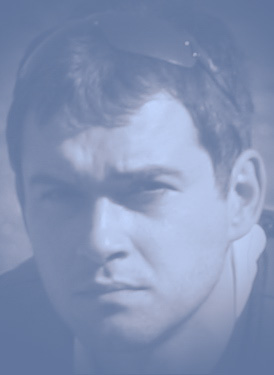
Author's Biography
August Strindberg (SWE)* 22.01.1849† 14.05.1912 (63 years old) Johan August Strindberg (22 January 1849 – 14 May 1912) was a Swedish playwright, novelist, poet, essayist and painter. A prolific writer who often drew directly on his personal experience, Strindberg's career spanned four decades, during which time he wrote over 60 plays and more than 30 works of fiction, autobiography, history, cultural analysis, and politics. A bold experimenter and iconoclast throughout, he explored a wide range of dramatic methods and purposes, from naturalistic tragedy, monodrama, and history plays, to his anticipations of expressionist and surrealist dramatic techniques. From his earliest work, Strindberg developed forms of dramatic action, language, and visual composition so innovative that many were to become technically possible to stage only with the advent of film. He is considered the "father" of modern Swedish literature and his The Red Room (1879) has frequently been described as the first modern Swedish novel. In Sweden Strindberg is known both as a novelist and a playwright, but in most other countries he is known almost exclusively as a playwright. The Royal Theatre rejected his first major play, Master Olof, in 1872; it was not until 1881, at the age of 32, that its première at the New Theatre gave him his theatrical breakthrough. In his plays The Father (1887), Miss Julie (1888), and Creditors (1889), he created naturalistic dramas that – building on the established accomplishments of Henrik Ibsen's prose problem plays while rejecting their use of the structure of the well-made play – responded to the call-to-arms of Émile Zola's manifesto "Naturalism in the Theatre" (1881) and the example set by André Antoine's newly established Théâtre Libre (opened 1887). In Miss Julie, characterisation replaces plot as the predominant dramatic element (in contrast to melodrama and the well-made play) and the determining role of heredity and the environment on the "vacillating, disintegrated" characters is emphasized. Strindberg modelled his short-lived Scandinavian Experimental Theatre (1889) in Copenhagen on Antoine's theatre and he explored the theory of Naturalism in his essays "On Psychic Murder" (1887), "On Modern Drama and the Modern Theatre" (1889), and a preface to Miss Julie, the last of which is probably the best-known statement of the principles of the theatrical movement. During the 1890s he spent significant time abroad engaged in scientific experiments and studies of the occult. A series of psychotic attacks between 1894 to 1896 (referred to as his "Inferno crisis") led to his hospitalisation and return to Sweden. Under the influence of the ideas of Emanuel Swedenborg, he resolved after his recovery to become "the Zola of the Occult". In 1898 he returned to playwriting with To Damascus, which, like The Great Highway (1909), is a dream-play of spiritual pilgrimage. His A Dream Play (1902) – with its radical attempt to dramatise the workings of the unconscious by means of an abolition of conventional dramatic time and space and the splitting, doubling, merging, and multiplication of its characters – was an important precursor to both expressionism and surrealism. He also returned to writing historical drama, the genre with which he had begun his playwriting career. He helped to run the Intimate Theatre from 1907, a small-scale theatre, modelled on Max Reinhardt's Kammerspielhaus, that staged his chamber plays (such as The Ghost Sonata). Strindberg was married three times, as follows: Strindberg was age 28 and Siri was 27 at the time of their marriage. He was 44 and Frida was 21 when they married and he was 52 and Harriet was 23 when they married. Late during his life he met the young actress and painter Fanny Falkner (1890–1963) who was 41 years younger than Strindberg. She wrote a book which illuminates his last years, but the exact nature of their relationship is debated. He had a brief affair in Berlin with Dagny Juel before his marriage to Frida; it has been suggested that the news of her murder in 1901 was the reason he cancelled his honeymoon with his third wife, Harriet. He was related to Nils Strindberg (a son of one of August's cousins). Strindberg's relationships with women were troubled and have often been interpreted as misogynistic by contemporaries and modern readers. Most acknowledge, however, that he had uncommon insight into the hypocrisy of his society's gender roles and sexual morality. Marriage and families were being stressed in Strindberg's lifetime as Sweden industrialized and urbanized at a rapid pace. Problems of prostitution and poverty were debated among writers, critics and politicians. His early writing often dealt with the traditional roles of the sexes imposed by society, which he criticized as unjust. Strindberg's last home was Blå tornet in central Stockholm, where he lived from 1908 until 1912. It is now a museum. Of several statues and busts of him erected in Stockholm, the most prominent is Carl Eldh's, erected in 1942 in Tegnérlunden, a park adjoining this house. Bibliography: http://en.wikipedia.org/wiki/August_Strindberg_bibliography Source: http://en.wikipedia.org/wiki/August_Strindberg |
